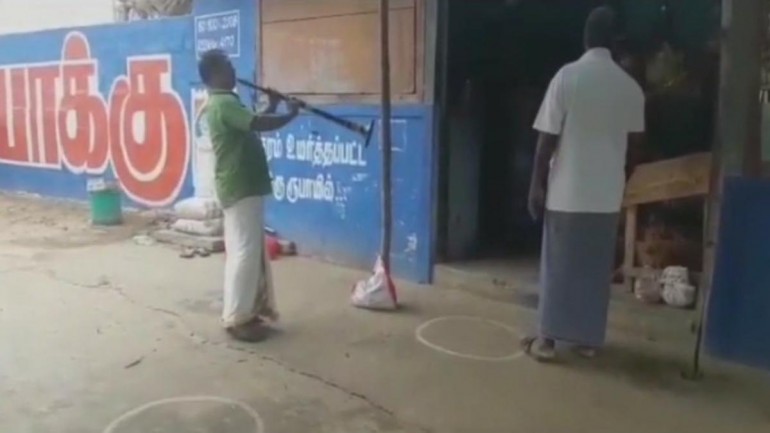Amid the numerous industries and sectors that the deadly Coronavirus has brought a halt or even a total closure to, is one which for decades has remained untouched by major financial crises and that is the entertainment industry. The entertainment industry and artists engaged in various specialisations have garnered, if not huge, considerable profits over time and have not known profit loss, at least of this scale ever before. The pandemic has significantly changed the way people in the world are working and managing their daily lives. Such a scenario is promoting artists to learn to adapt to a “new normal” as art fairs, exhibitions workshops, theatres, cinema halls, and concerts have all been shut. Affected artists and performers dependent on these venues are facing major financial difficulties with emerging and new artists suffering an even greater blow to their livelihoods. Many artists and performers say that the work they create doesn’t feel real without physical outlets and that online performances seem more “artificial.”
Muthoni Drummer Queen, a Kenyan rapper while talking to Al Jazeera said, “without some degree of gear, it’s not possible to give a good output online and without a good output online, it’s very difficult to maintain the attention of your fans or new fans. Artists and performers really rely on performance income to actually have money in their pocket.” Besides emerging financial insecurities, artists in some countries are facing a threat to their personal safety and freedom as the authorities are increasingly using the crisis to crack down on artistic freedom. In China, two journalists hailing from Wuhan, Fang Bin and lawyer Chen Qiushi, have disappeared under the guise of “quarantine.” An activist and scholar Xu Zhiyong, who has also criticised Xi Jinping for mishandling Covid-19 and other matters, has been in detention since February when China had already imposed a lockdown.
In India, the lockdown has been imposed on March 25 now. Saravanan, a 43-year-old Nadaswaram musician from Dindigul district of Tamil Nadu says that since lockdown, things haven’t been the same. “I have seven mouths to feed, and I am using my music to get basic items to feed them. The government gave Rs 1,000 and some ration, it lasted for just 15 days,” said Saravanan to IndiaToday. He used to earn 10,000 per month but is now bartering his music for food. In another Tamil Nadu district Pollachi, all the booked events have been cancelled and the musicians have had to refund the advance taken. “Over 250 families from Pollachi and over 1,200 families from Coimbatore are dependent on this Mangala Isai but now because of corona all of us have lost our livelihood,” Katheeresan, a Nadaswaram musician told IndiaToday. Mangala Isai means a piece of divine music wherein the instruments are only used for auspicious occasions such as in temples or festivals or weddings.
Moreover, a cloud of uncertainty looms over Bollywood, one of India’s most profitable sector, as release dates of hundreds of films and other projects are stuck in post-production stages. Bollywood roughly employs 25 million people. Many are now without work and wages. The worst-hit are about 35,000 daily wage workers. Siddhartha, Vice President, Films and Television says, as reported by India.com that “there has to be a new addition in the rules of film production because that will determine the way one shoots films going forward. The pandemic has impacted the Hindi film industry on an unprecedented scale.” Producer Anand Pandit while talking to India.com explained that the first thing to do is to worry about those films which are almost completed and yet not finished. He said, “First of all, a stronger solution to keep our technicians and daily wage workers provided for; secondly, we will need to figure out how theatres will function because that will determine how films get released and thirdly, projects which were already on the floors or midway will need to be completed. Starting new projects might take a while.”
There’s also this entire confusion as to whether or not to release movies on digital platforms which are significantly experiencing a surge in membership. The very competitive Bollywood paparazzi, who earn about 500-700 rupees after a long day, have little work which comes with its own risks. The filmmaker and producer Rohit Shetty and the actor Hrithik Roshan donated money to support them. Karan Johar, one of Bollywood’s most successful and prominent filmmakers said in an interview with the New York Times that “you have to believe that it will all work out. But right now, we also have to be realists. I have told everyone in my company, please don’t think of growth, think of survival.” The young filmmaker was soon to start shooting for his movie Takht, in Italy.
Such are the stories of hundreds of thousands of artists, creators, and performers all over the world. Even as we struggle to survive, we have to have a firm belief that a happy morning will be here soon.
Also Checkout: Zayn Malik Net Worth – Early Life, Career, Personal Life, Quotes And Unknown Facts
